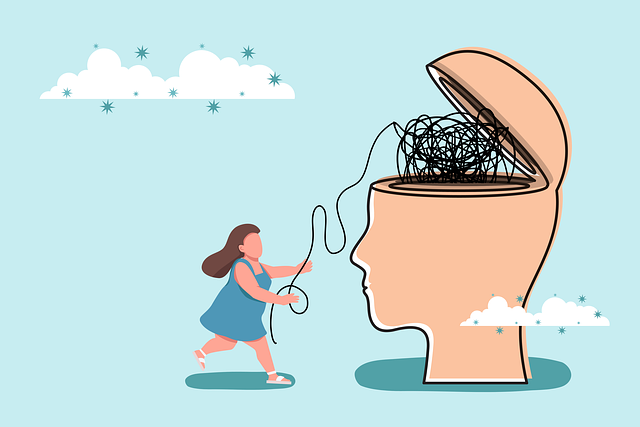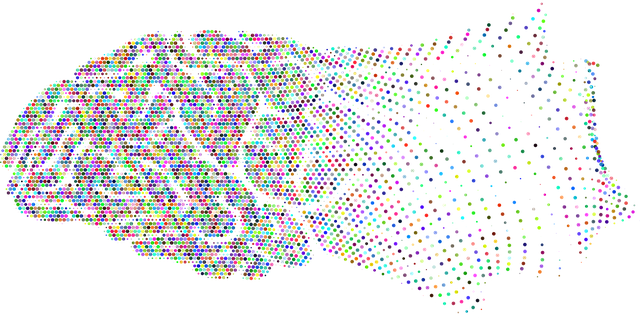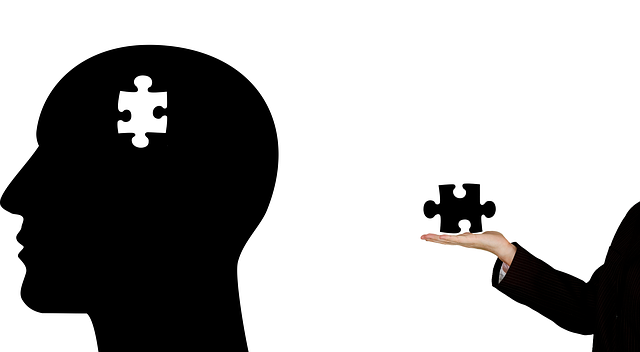Lone Tree Stress Management Therapy is a comprehensive approach to improving mental wellness for individuals with anxiety, depression, or other mental health conditions. By focusing on social skills training, they empower clients to navigate social situations more comfortably and build stronger relationships. The therapy combines cognitive-behavioral techniques, role-playing, group therapy, and educational resources to address the unique challenges faced by those with mental health issues in social interactions. This holistic method enhances communication, empathy, and emotional resilience, ultimately improving overall mental well-being and quality of life for clients.
Social skills training is a powerful tool for managing mental health conditions, offering individuals the chance to improve their interactions and overall well-being. This article delves into the significance of social skills in mental health, exploring common challenges faced by those with conditions like anxiety or depression. We present effective strategies for training, highlighting Lone Tree Stress Management Therapy as an innovative approach that combines therapeutic techniques with social development. By understanding these methods, individuals can enhance their support networks and lead more fulfilling lives.
- Understanding Social Skills and Their Impact on Mental Health
- Identifying Challenges in Social Interaction for Individuals with Mental Health Conditions
- Strategies and Techniques for Effective Social Skills Training
- Incorporating Lone Tree Stress Management Therapy into Social Skills Development
Understanding Social Skills and Their Impact on Mental Health

Social skills are a fundamental aspect of human interaction and play a pivotal role in our mental health and overall well-being. They encompass a range of abilities, from initiating conversations to interpreting social cues, maintaining eye contact, and showing empathy. These skills facilitate meaningful connections with others, fostering a sense of belonging and support, which is crucial for managing stress and promoting positive mental health.
For individuals dealing with mental health conditions, such as anxiety or depression, social interactions can often be challenging. Lone Tree Stress Management Therapy emphasizes the importance of social skills training as a therapeutic tool to enhance mental wellness. Through various techniques and exercises, clients learn to navigate social situations more comfortably, improve their communication, and build stronger relationships. This approach is further amplified by the Mental Wellness Podcast Series Production, which provides accessible resources and Self-Care Practices for ongoing support, thereby contributing to a growing Mental Health Awareness.
Identifying Challenges in Social Interaction for Individuals with Mental Health Conditions

Individuals with mental health conditions often face unique challenges when it comes to social interactions. These challenges can stem from a variety of factors, including symptoms of their condition, past traumatic experiences, or social anxiety. For instance, someone struggling with depression might find it hard to initiate conversations or maintain eye contact, while an individual dealing with bipolar disorder could exhibit unpredictable mood swings that impact their relationships. Lone Tree Stress Management Therapy recognizes these complexities and aims to help clients navigate these difficulties by providing tailored support.
The absence of adequate public awareness campaigns and healthcare provider cultural competency training further complicates matters. Mental health issues are often stigmatized, leading to social isolation and a fear of judgment when engaging in social situations. Therefore, comprehensive training for both healthcare professionals and the general public is essential. This includes learning about different conditions, their symptoms, and effective communication strategies to foster an inclusive environment. By addressing these challenges head-on, Lone Tree Stress Management Therapy contributes to improved social skills and overall well-being for those managing mental health conditions.
Strategies and Techniques for Effective Social Skills Training

Social Skills Training plays a pivotal role in mental health conditions, especially for individuals seeking Lone Tree Stress Management Therapy. Effective strategies involve a blend of cognitive-behavioral techniques and experiential learning. Therapists can utilize role-playing scenarios to practice social interactions, helping clients build confidence in real-life situations. This hands-on approach allows them to navigate and respond appropriately to various social cues.
Additionally, group therapy sessions facilitate emotional healing processes by providing a safe space for sharing experiences and building connections. Trauma Support Services often integrate Stress Reduction Methods tailored to individual needs, fostering a sense of belonging and improving overall communication skills. These techniques not only enhance self-expression but also enable better understanding and empathy towards others, ultimately contributing to improved mental well-being.
Incorporating Lone Tree Stress Management Therapy into Social Skills Development

Incorporating Lone Tree Stress Management Therapy into social skills development for individuals with mental health conditions offers a holistic approach to healing and growth. This therapy technique focuses on teaching effective stress management strategies, which are essential tools for navigating social interactions successfully. By learning to recognize and regulate their own stress responses, individuals can enhance their emotional resilience, making them better equipped to handle potentially triggering social situations.
Lone Tree Stress Management Therapy empowers participants with valuable conflict resolution techniques and mental wellness journaling exercise guidance. Through structured communication strategies, individuals gain the confidence to express themselves assertively while fostering healthy relationships. This integration of stress management and social skills training creates a supportive environment where personal growth is nurtured, promoting improved mental wellness and overall quality of life.
Social skills training is a powerful tool in supporting individuals with mental health conditions, helping them navigate social interactions more effectively. By understanding the unique challenges these individuals face and employing tailored strategies, such as incorporating Lone Tree Stress Management Therapy, we can foster meaningful connections and enhance overall well-being. This holistic approach to mental health care empowers folks to build confidence, improve relationships, and lead more fulfilling lives.














